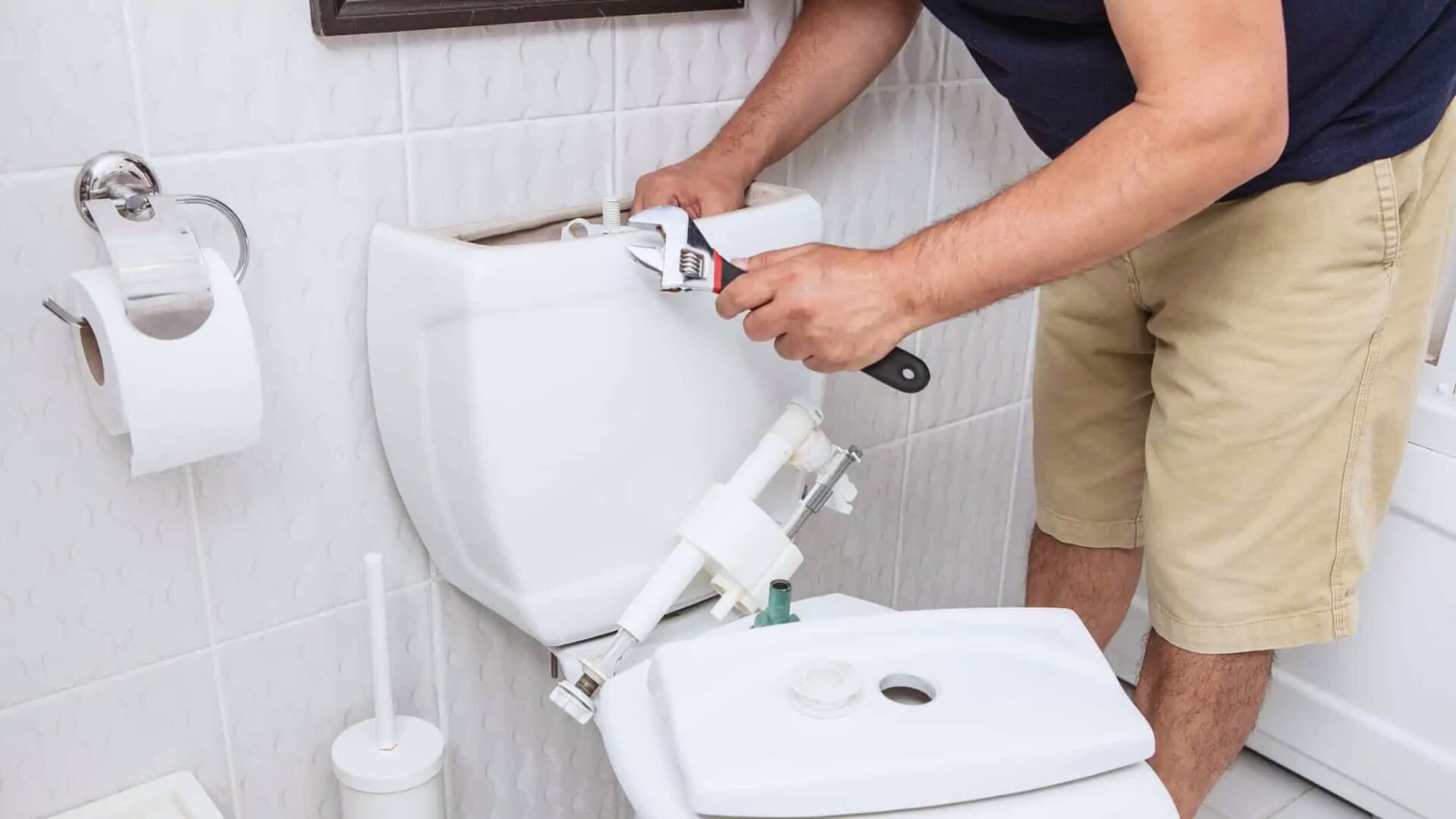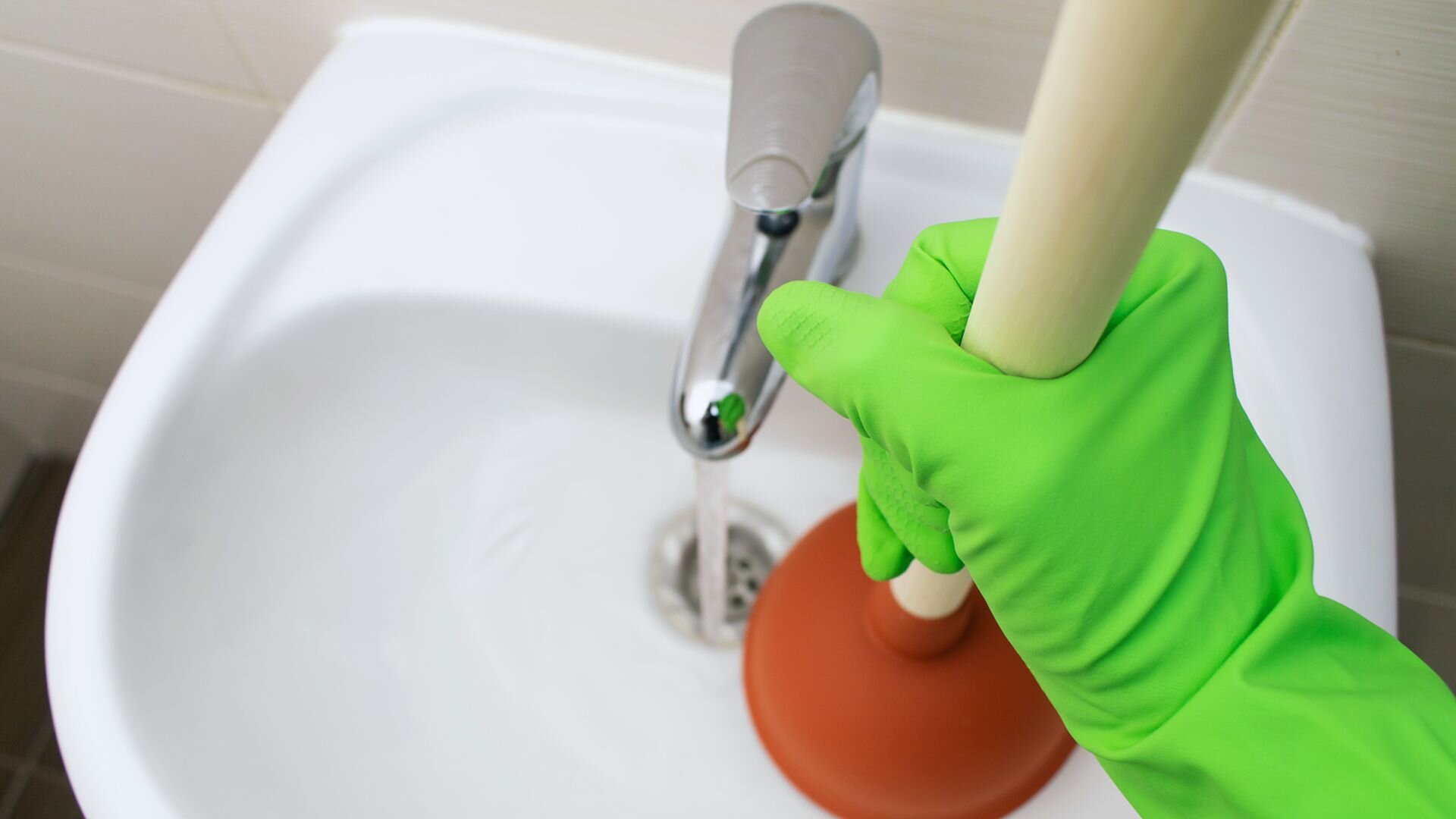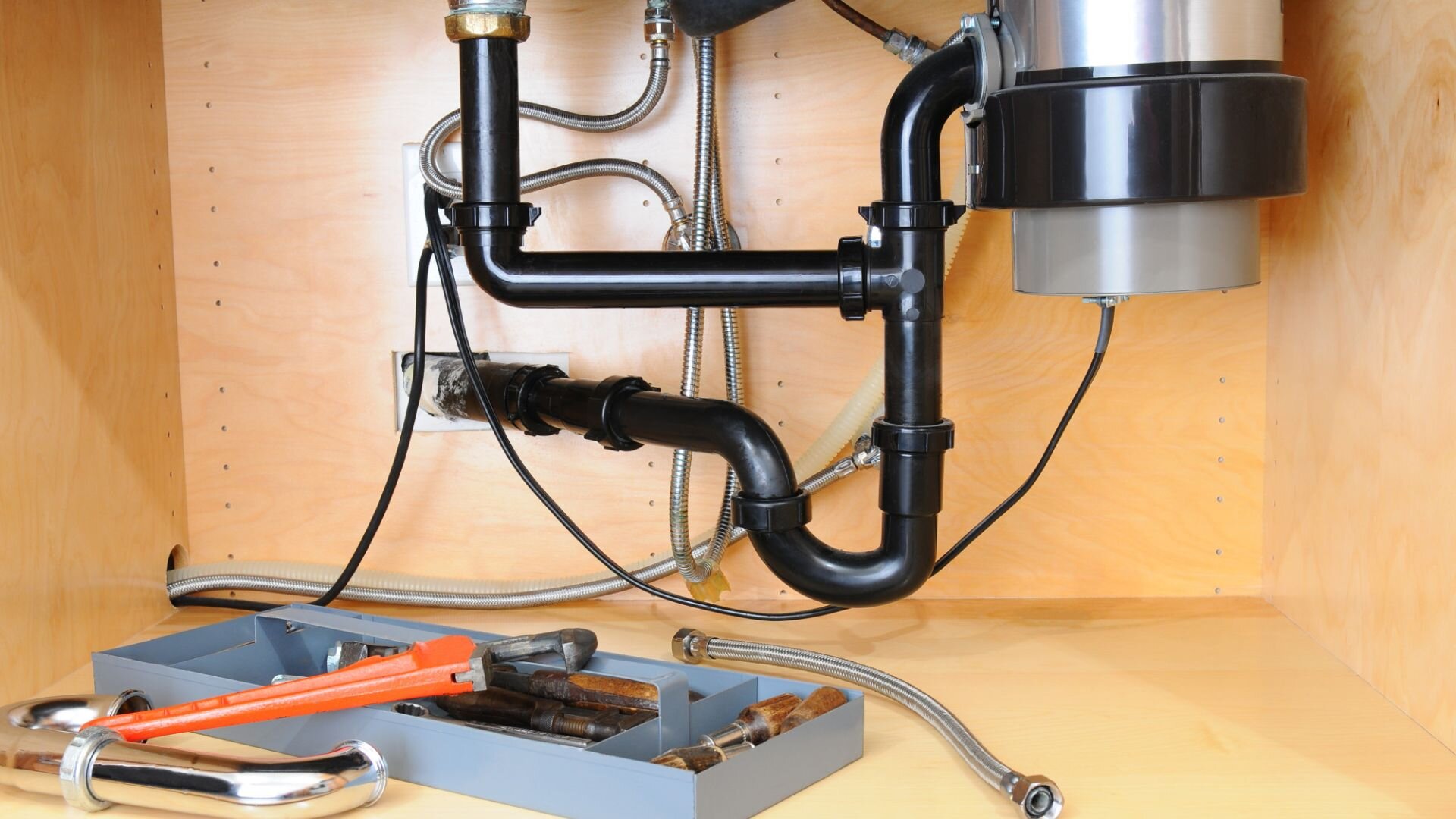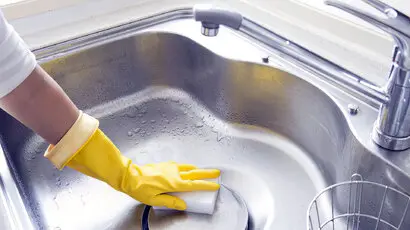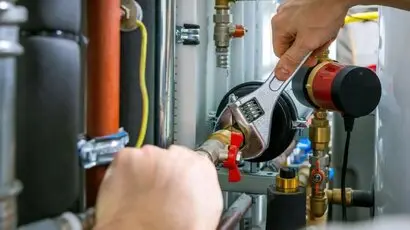Dealing with plumbing issues can be quite disruptive and inconvenient, not to mention pricey. Taking a proactive stance and practising preventative maintenance, however, can greatly lessen the chances of facing serious plumbing headaches.
Here, we’ll walk you through key steps and share expert tips to keep your plumbing system in top shape. By following these suggestions, you might save yourself from the stress and costly surprises of sudden repairs while extending your plumbing system’s life.
Ready to give your plumbing system the care it deserves? Let’s dive in!
What Is Plumbing Maintenance?
![]()
Plumbing maintenance refers to the regular care and upkeep of a building’s plumbing system. It involves inspections, cleaning drains, addressing minor issues, and maintaining water heaters.
The aim here is to catch problems early, stop major damage in its tracks, and keep things running smoothly, helping your plumbing components last longer. Good maintenance also avoids wasting water and minimises water damage risks, ensuring safety and health for everyone at home. While homeowners can tackle some jobs, calling in a pro is best for more complex systems or significant repairs.
Benefits Of Preventative Plumbing Maintenance
Taking on preventative plumbing maintenance comes with several perks beyond just dodging costly repairs. By keeping up with regular upkeep, you’ll benefit from a longer-lasting, more efficient plumbing system that functions remarkably well.
![]()
1. Extended Lifespan Of Your Plumbing System
Regular maintenance helps prolong the lifespan of your plumbing system. By promptly addressing minor issues and performing necessary repairs or replacements, you prevent them from escalating into more significant problems that can significantly damage your plumbing system.
This proactive approach ensures that your pipes, fixtures, and other components last longer, saving you from the inconvenience and expense of premature replacements.
2. Improved Water Efficiency And Conservation
When your plumbing system is in good nick, it works more efficiently, cutting down on water waste and slashing your utility bills. Regular checks let you spot leaks, fix or swap out dodgy faucets or fixtures, and get the water flowing just right.
Ensuring proper functioning and addressing inefficiencies contributes to water conservation efforts and reduces your environmental footprint.
3. Cost Savings Long-Term
Investing in preventative plumbing maintenance can save you money in the long run. Regularly inspecting and maintaining your plumbing system can catch and address issues early on, preventing them from developing into costly emergencies.
Additionally, well-maintained plumbing systems are less likely to experience major breakdowns that require expensive repairs or replacements.
4. Enhanced Home Safety
Properly maintained plumbing systems contribute to a safer living environment. Regular inspections help identify potential hazards such as leaks, faulty connections, or deteriorating pipes that could lead to water damage or even health risks from mould or mildew.
By addressing these issues promptly, you safeguard the well-being of your family and maintain a safe home environment.
5. Peace Of Mind And Convenience
Knowing that your plumbing system is well-maintained provides peace of mind. You can have confidence in its reliability and functionality, reducing the likelihood of unexpected breakdowns or disruptions.
Additionally, preventative maintenance helps avoid inconveniences such as burst pipes, clogged drains, or malfunctioning fixtures that disrupt your daily routine.
Signs Of Potential Plumbing Issues
Spotting the early warning signs of plumbing issues can spare you from hefty repair bills and severe water damage. Taking quick action helps avoid further problems and keeps your plumbing system running smoothly. Here are a few common signs to watch out for:
![]()
Slow Drains
If your sinks, showers, or tubs are draining slowly, it may indicate a partial pipe blockage. Accumulated debris, grease, or hair can impede water flow and lead to complete blockages if left untreated.
Low Water Pressure
If you notice a sudden decrease in water pressure throughout your home, it could indicate a plumbing problem. Potential causes include pipe leaks, mineral build-up, or a malfunctioning pressure regulator.
Unusual Noises
Gurgling sounds or strange noises from your plumbing system can indicate underlying issues. These noises often occur when air is trapped in the pipes, resulting from poor ventilation or a blockage.
Foul Odours
Persistent foul odours from your sink, drains, or plumbing fixtures may indicate a sewer line issue or a build-up of organic matter in the pipes. These odours can be unpleasant and should be addressed promptly.
Water Discolouration
If you notice a brownish or rusty colour in your tap water, it could be a sign of corrosion or sediment build-up in the plumbing system. Discoloured water may also indicate a problem with your water supply or the need for pipe replacement.
Frequent Toilet Clogs
Constantly dealing with toilet clogs despite using minimal toilet paper could indicate a deeper issue within the plumbing system. It may be a sign of a blockage in the sewer line or inadequate flushing power.
Leaks And Water Spots
Water spots on walls, ceilings, or floors and the sound of dripping water are clear indicators of leaks. Leaks can occur in pipes, faucets, toilets, or water-using appliances and should be addressed promptly to prevent further damage.
High Water Bills
A sudden increase in your water bill without apparent explanation can indicate an undetected plumbing leak. Monitoring your water usage and bills can help you identify potential issues early on.
D.I.Y. Plumbing Maintenance: What You Can Do
Simple plumbing maintenance tasks can help keep your plumbing system in good working condition and prevent potential issues from escalating.
While some plumbing tasks require professional expertise, you can safely handle several D.I.Y. maintenance tasks. Here are some essential steps you can take to maintain your plumbing system:
![]()
Regularly Check For Leaks
Inspect your plumbing fixtures, including faucets, showerheads, and toilets, for any signs of leaks. Look for dripping water, water spots, or pooling water around the fixtures. If you detect a leak, promptly repair or replace the faulty component to prevent further water wastage and potential water damage.
Clean Your Drains Regularly
Hair, soap residue, and debris can accumulate in drains, leading to clogs. To remove build-up, regularly clean the drain stoppers and strainers in your sinks, showers, and tubs. This simple maintenance task can help prevent blockages and maintain proper drainage.
Inspect And Clean Your Guttering System
Clogged gutters can cause water to overflow and potentially damage your home’s foundation or walls. Regularly inspect and clean your gutters to remove leaves, twigs, and other debris obstructing water flow. Ensure that downspouts are clear and direct water away from your property.
Ensure Sufficient Water Pressure
Check the water pressure in your home using a pressure gauge. The ideal water pressure range is typically between 40 to 60 pounds per square inch (psi). If the pressure is too high or too low, you may need to adjust your pressure regulator or consult a professional plumber to address the issue.
Flush Your Hot Water System
Sediment build-up can affect the efficiency and lifespan of your water heater. Periodically flush the water heater to remove accumulated sediment. Follow the manufacturer’s instructions or seek guidance from a professional if you need clarification on the process.
Insulate Your Plumbing Pipes
Insulating exposed pipes, especially those in colder areas of your home, can help prevent freezing during winter months. Use pipe insulation sleeves or heat tape to protect the pipes from freezing temperatures and reduce the risk of pipe bursts.
Avoid Harsh Chemical Drain Cleaners
Chemical drain cleaners may seem like a quick fix for clogged drains, but they can damage your plumbing system over time. Instead, use a plunger or a drain snake to clear minor clogs. For stubborn or persistent clogs, consider contacting a professional plumber.
Practice Water Conservation
Incorporate water-saving habits into your daily routine to conserve water and reduce your environmental footprint. Turn off the faucet while brushing your teeth, take shorter showers, and consider installing water-saving fixtures such as low-flow showerheads and dual-flush toilets.
![]()
Safeguard Your Plumbing, Save Your Wallet With WP Plumbing
Looking after your plumbing with preventative maintenance is crucial for any homeowner, helping you avoid expensive repairs and headaches later on. By grasping why regular maintenance matters and following key steps, you’ll not only extend the life of your plumbing but also boost water efficiency and shield your home from potential havoc.
W.P. Plumbing is committed to providing expert advice and reliable plumbing services in Melbourne. Our team of plumbers is equipped with the knowledge, experience, and specialised tools to handle all your plumbing maintenance needs. With our lifetime labour guarantee, same-day response, fixed pricing, and 24/7 availability, we prioritise customer satisfaction and deliver top-notch service.
Pay attention to the significance of preventative plumbing maintenance. Please schedule an appointment with WP Plumbing today and let our experts help you maintain a healthy and efficient plumbing system in your home.
Frequently Asked Questions (FAQs)
Why is preventative plumbing maintenance essential?
Regular preventive maintenance helps identify potential issues before they become major problems, saving you time, money, and inconvenience. It prolongs the lifespan of your plumbing system, improves water efficiency, and reduces the risk of costly repairs from water leaks or other plumbing issues.
How often should I schedule plumbing maintenance?
Professional plumbing maintenance is recommended at least once a year as part of a regular plumbing maintenance schedule. However, certain factors, such as the age of your plumbing system, water quality, and usage patterns, may require more frequent inspections and maintenance.
What are the signs of a potential plumbing issue?
Look out for warning signs such as slow drains, recurring clogs, low water pressure, unusual noises in the pipes, foul odours, toilet leaks, or sudden increases in water bills. These signs may indicate underlying plumbing problems that require attention.
Can I perform my own plumbing repairs and maintenance?
While homeowners can do minor plumbing tasks, knowing your limits is essential. DIY maintenance should be limited to simple tasks like fixing a leaky faucet or unclogging a drain. Hiring a professional plumber is best to ensure the job is done safely and correctly for complex repairs or installations.
What are the benefits of hiring professional plumbers for maintenance?
Professional plumbers have the expertise, tools, and experience to handle all aspects of plumbing maintenance effectively. They can detect hidden issues, provide comprehensive inspections, offer tailored solutions, and ensure the long-term integrity of your plumbing system. Following plumbing maintenance tips from professionals can also help prevent issues.
What are some preventive maintenance tips?
Some key preventive maintenance tips include insulating exposed pipes to prevent freezing, regularly checking for water leaks, avoiding chemical drain cleaners, scheduling annual inspections, and promptly addressing any plumbing issues that arise.

